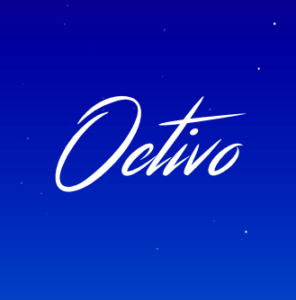Digital Learning Milestones: A Retrospective
Digital learning has come a long way since the early days of online courses. What started as a novel approach to education has now become a critical component of modern education. Today, eLearning platforms offer a range of courses, from traditional academic subjects to vocational training and personal development. But how did we get here, and what are the significant milestones in the evolution of digital learning?
Digital Learning Milestones Through The Years
Early Days Of Online Courses
Online courses have been around since the early days of the internet. In the late 1990s, the web was beginning to gain traction, and people were starting to experiment with using it for educational purposes. One of the earliest online courses was offered by the University of Phoenix in 1989, which provided an online platform for students to complete their degrees. Other early online courses were delivered through email, bulletin board systems, and early web-based platforms.
The first significant innovation in digital learning was the development of the Learning Management System (LMS). An LMS is a software platform that provides instructors with a range of tools to manage and deliver educational content to students. The first LMS, called WebCT, was created in 1996 by a group of computer science professors at the University of British Columbia. WebCT was quickly adopted by other universities and helped to standardize the delivery of online courses.
The Rise Of MOOCs
The next significant milestone in digital learning was the development of Massive Open Online Courses (MOOCs). MOOCs are online courses that are designed to be open and accessible to anyone with an internet connection. They are typically offered by universities or other educational institutions and provide learners with access to high-quality educational content.
The first MOOC was created in 2008 by a Canadian professor named George Siemens. Siemens created a course on connectivism, which he offered through the University of Manitoba. The course attracted a significant amount of attention and helped to spark the development of other MOOCs. The most well-known MOOC platform is Coursera, which was founded in 2012 by two computer science professors from Stanford University. Coursera has since grown to offer more than 4000 courses from over 200 universities and institutions worldwide. Other popular MOOC platforms include edX, Udacity, and FutureLearn.
The Advent Of Learning Analytics
Learning analytics is the process of using data to improve learning outcomes. Learning analytics can help instructors identify areas where students are struggling and provide targeted interventions to help them succeed. The use of learning analytics has become increasingly popular in recent years, thanks in part to the availability of large data sets and powerful analytics tools. One of the earliest pioneers in learning analytics was the Open Learning Initiative (OLI) at Carnegie Mellon University. OLI was founded in 2002 and used a range of data analytics tools to improve the effectiveness of online courses. Since then, other institutions have followed suit, and learning analytics has become a standard feature of many eLearning platforms.
Personalized Learning
Personalized learning is an approach to education that seeks to tailor instruction to the unique needs and abilities of individual learners. Personalized learning is made possible by the use of data analytics tools, which can help instructors identify areas where students need additional support or challenge. One of the earliest pioneers in personalized learning was the Khan Academy, which was founded in 2008 by Salman Khan. The Khan Academy offers a range of educational videos and exercises, which are personalized to each learner's needs. Since then, other institutions have followed suit, and personalized learning has become a critical component of many eLearning platforms.
The Future Of Digital Learning
Looking to the future, it seems likely that digital learning will continue to play an increasingly important role in education. As the digital learning landscape continues to evolve, there are several key trends that are likely to shape the future of the industry.
Emerging Technologies
One of the most significant trends is the growing use of Artificial Intelligence (AI) and machine learning (ML) in digital learning. These technologies are being used to create personalized learning experiences that are tailored to each individual learner's needs and preferences. Another trend that is likely to continue is the shift toward more immersive and interactive learning experiences. Virtual Reality (VR) and Augmented Reality (AR) technologies are already being used to create highly engaging and interactive learning experiences, and as these technologies become more accessible and affordable, we can expect to see them being used more widely in digital learning.
Soft Skills Training
The increasing importance of soft skills is also likely to drive changes in digital learning. As the nature of work changes and automation continues to replace jobs that require technical skills, soft skills such as communication, collaboration, and problem-solving are becoming more important. Digital learning will need to adapt to help learners develop these skills.
Lifelong Learning
Finally, the growing importance of lifelong learning means that digital learning will need to be more flexible and accessible than ever before. As people's careers become more fluid and they need to continually upskill and reskill, digital learning will need to provide ongoing support that is available anytime, anywhere.
Conclusion
Overall, the future of digital learning is bright, with exciting new technologies and trends shaping the industry. However, it is important to remember that while technology can enhance learning, it is not a substitute for good teaching and Instructional Design. The most successful digital learning experiences will be those that are grounded in sound educational principles and designed to meet the needs of learners.









